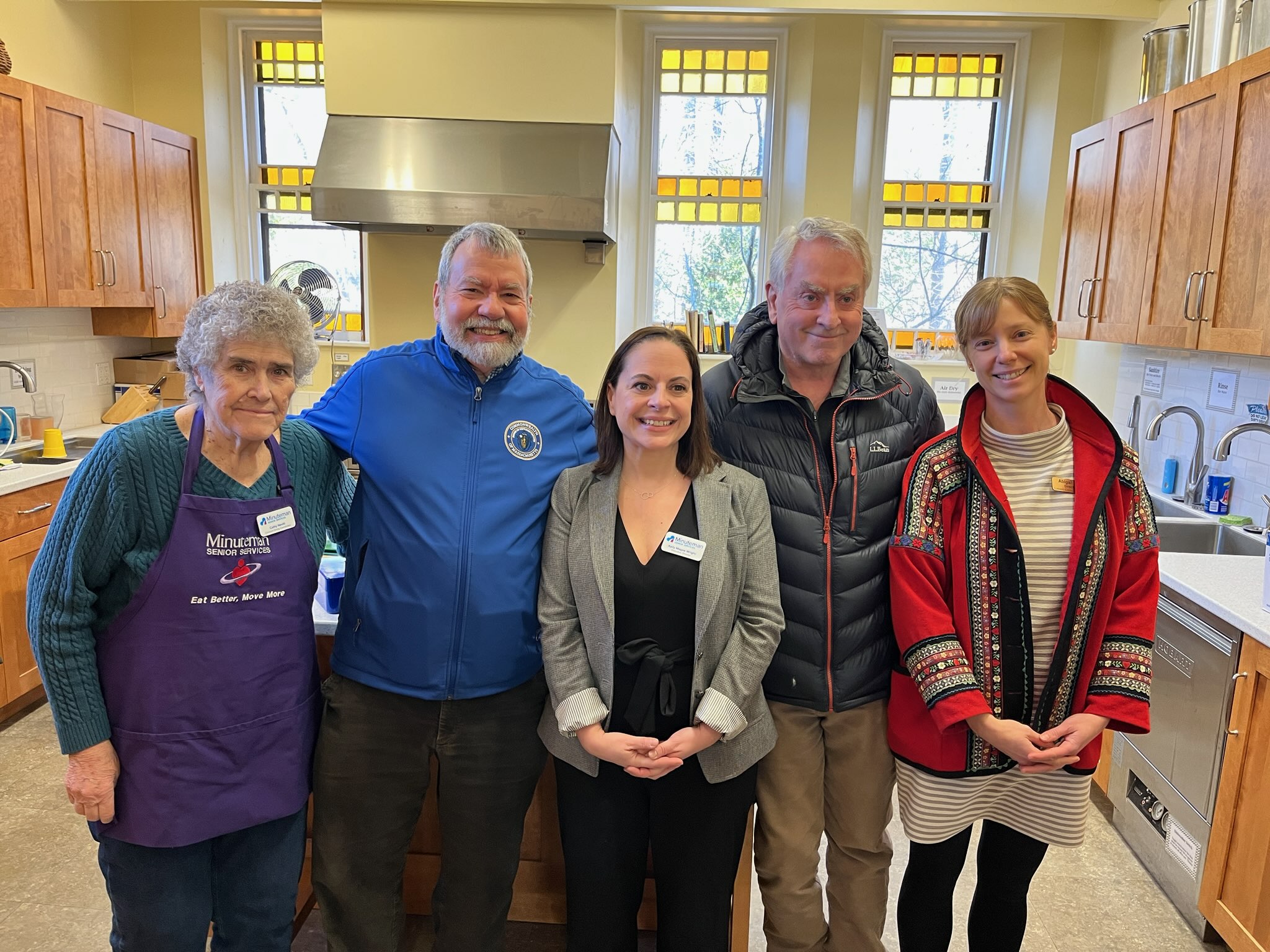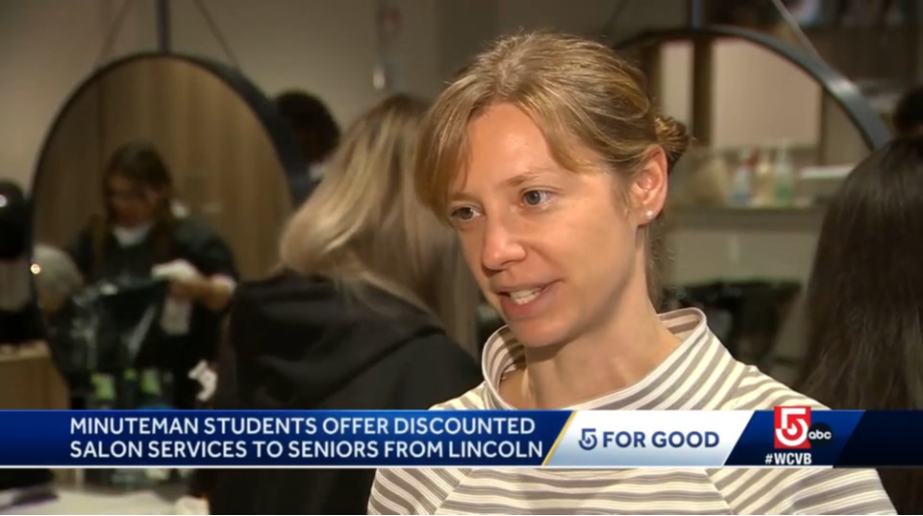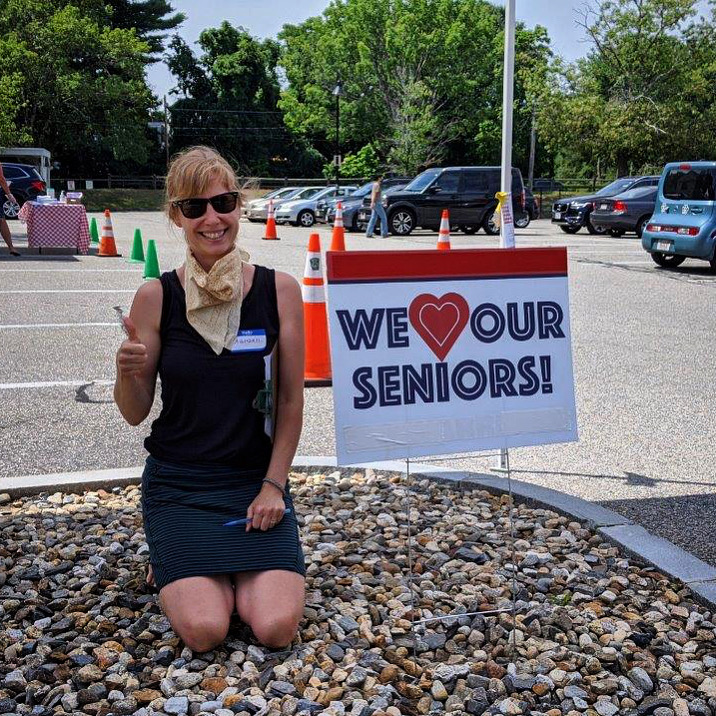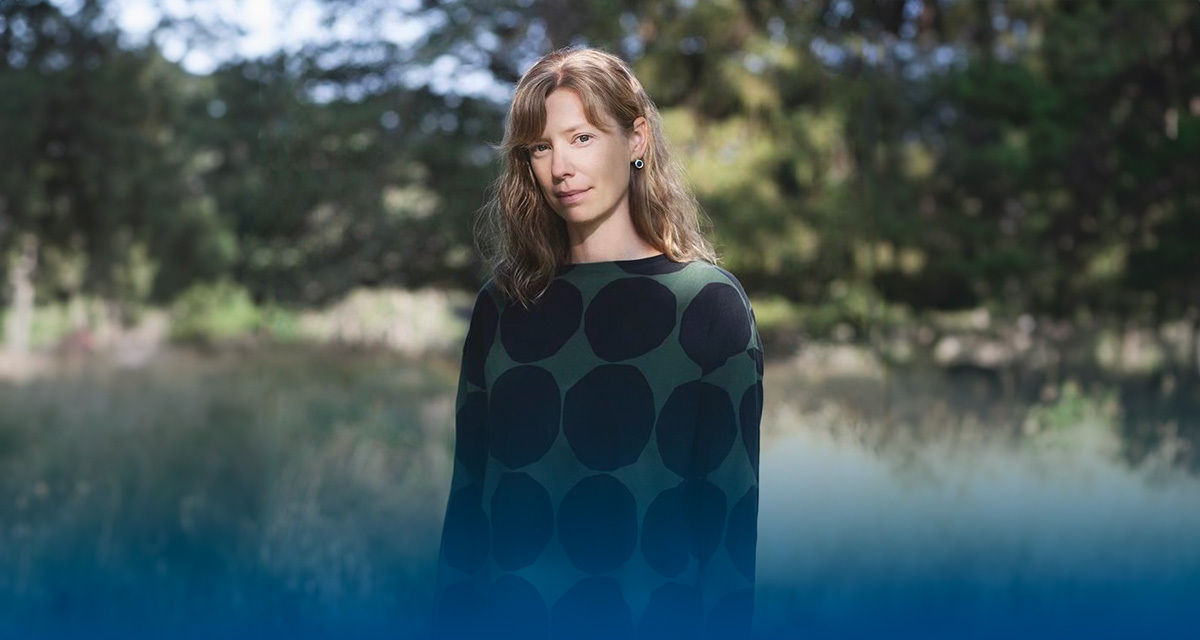Championing Elder Equality: Abigail Butt ’05 Advocates for Aging Communities
Abigail Butt ’05, M.Sc., Ph.D., studied psychology at Gordon and is now the director of the Lincoln Council on Aging & Human Services. We sat down with her to ask about her job working in a government municipality and her passion for helping people.
What is a Council on Aging? What do they do?
It’s a Massachusetts state law that every municipality—towns, villages and cities—may have a Council on Aging (COA) board designed to meet the needs of the aging population at a local level. Once these boards were initially formed, it started a grassroots movement where people saw in their own communities a gap in care for elders. Over time, the result was the creation of formal senior centers. Essentially, any COA’s mission is to provide four things to seniors: nutrition, socialization and recreation, transportation and social service support. Everything is happening here, including Zumba, trips to Tanglewood, hot meals, crisis intervention and protective reports. The work in aging services is incredibly varied and fast-paced—and as the director I oversee it all. No day is the same, but I love it.
In my municipality, the COA has evolved to include the field of human services for all ages, and more municipalities in Massachusetts have been adapting their programming to encompass the same. The age of 60 is an arbitrary number—some people need services sooner, some later. Regardless, everyone alive knows someone in the aging community who might need support, and so these resources are for them too. For example, a 40-year-old child of a senior can still go to a COA and get the resources they need to help their aging parent(s) remain living in their home.
What do you love most about advocating for seniors?

The most incredible thing about this role is that when a problem is bigger than my local community, I get to collaborate with senators, representatives, national departments in D.C., Boston departments and more to create change in policies that can impact people at a state or national level because of my tiny little role at the local level.
For example, one program we have is senior farmers’ market nutrition coupons. It started in the 1980s through the Department of Agricultural Resources under the Farm Bill Coupon booklets were worth $25 and acted just like cash. Currently, eligible seniors get them, take them to stalls at their local farmers’ markets, find the vendors who accept the coupons and use them to purchase exactly what food they want. This is huge if you’re a nutritionally insecure senior and don’t like or can’t eat the options at a food pantry. This empowers them to choose. They get out of the house to socialize. The money goes to the local economy to support agriculture within the region—nobody loses, everyone wins.
But about 18 months ago I realized I had never seen the value of the booklets increase and that $25 doesn’t give you much purchase power at a farmers’ market anymore because of inflation. I investigated and discovered the funding had stalled out—there weren’t enough booklets to go around because of demand and nearly every printed booklet was being redeemed. By law they could increase the value of the booklets up to $50, but they would have to print fewer booklets because the funding was capped.
So I went to the Lincoln COA Board and asked them to write letters advocating why funds should be increased for this program. State department employees are not allowed to lobby for funding, but I was able to contact the Mass Councils on Aging, my local COA boards, Massachusetts Meals on Wheels and others to get them interested in the problem. Once they all agreed to help, it only took a simple letter-writing campaign asking people at state and federal levels to increase the funding, and the booklets’ worth doubled the following season! Now the seniors can get a booklet worth $50 for their local farmers’ market.
How did Gordon prepare you to serve the aging community?

The critical thinking skills I learned at Gordon were huge. Not just in the Psychology Department, but in all my classes. I learned how to look at a problem from multiple angles with multiple theories and how to integrate them. This was important in my Ph.D. program because it gave me a leg up in my coursework. I also was a minor in Spanish and was able to study abroad. I use my Spanish training personally and professionally all the time to communicate with people.
But above all Gordon gave me a strong understanding of how to integrate my faith into my vocation. We are deeply ageist in our society. We can say we don’t like old people. We can make biased comments about anything from how they think to how they drive. But if you were to make similar comments about any other demographic, you’d be called out. We have been obligated to defend the cause of “the widow, the orphan, and the stranger.” My training at Gordon prepared me to put my faith into action. There is so much more work to do related to this and other equality issues. Working in municipal government is one way to create change.
What’s something you wish more people knew about working for aging services organizations?

This kind of work is something that more graduates would want to do if they knew about this field because there’s a mission to it. You have the chance to serve in a profound way and make tremendous lasting change in others’ lives. Like I said, we have been obligated to defend the cause of “the widow, the orphan, and the stranger.” I get to do all those things here, which is pretty awesome.
Whatever demographic you’re passionate about, you can serve them well in a municipality. The field of aging services is also multi-disciplinary. If you love organizing dynamic events, COAs have activity coordinator roles that coordinate senior programming, like senior games, senior speed dating, intergenerational proms, etc. If you want to be a nurse, we have public health nurse roles. We work with veterans. We have lawyers and finance experts that advocate, plan estates and manage personal finances post-retirement. The list of opportunities is endless.
For those with a psychology or social work background, we also have mental health clinics and group therapy support running constantly for seniors, adults and adolescents. Many psychology majors coming into the labor force are seeking to work with specific demographics like refugees, populations experiencing trauma or underserved communities. Municipal work touches on all of them, which is why my work is really rewarding!
What advice would you give to prospective students considering studying psychology?
Apart from it being awesome? It is unbelievably interesting. Even if you don’t end up being a psychologist like Dr. Kaye Cook, professor of psychology, or working in your own clinical practice, you will use the skills you learn in your degree every day of your life to understand more about the world and how it works. I am a much better supervisor and leader because of what I learned in psychology about how people work and think, how social systems run, how to be an employer and an employee. It will never be useless!
 The Bell
The Bell